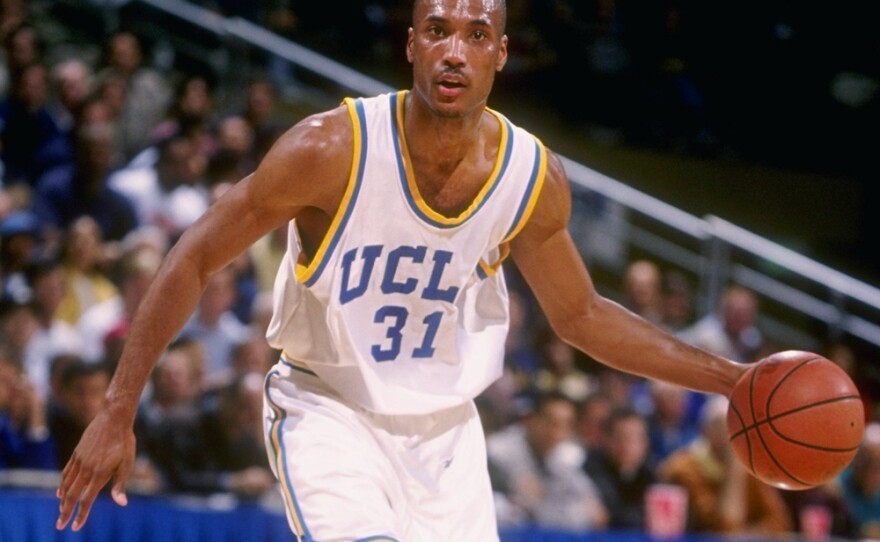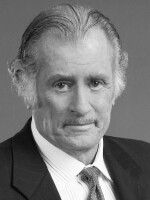On Wednesday, Ed O'Bannon gets some company in a lawsuit that may conceivably lead to the end of amateurism in big-time college football and basketball.
O'Bannon was a basketball star at UCLA in the 1990s, but for the past few months, he's been a lead plaintiff in a class-action antitrust lawsuit against the NCAA, which argues that he and his fellow big-time athletes through the years should have been paid by the NCAA for the use of their likenesses in video games.
The names of a number of other former college athletes, some whom played as far back as the 1960s, will be revealed Wednesday, giving more substance to the charge that the NCAA has, for decades, withheld from athletes hundreds of millions, perhaps even billions, of dollars that it made by merchandising those athletes — not only in video games, but in DVDs, apparel, memorabilia and other profit realms.
But as Jon King, the lead lawyer for the players, says, "the case has much broader implications."
That is to say, while the train is leaving the station on the side track of video games, the end of the journey may well be the express end of amateurism — that vestige from the 19th century, which is almost unique to sport, postulating that athletes should happily work for free while everybody else in the game gets well compensated.
The NCAA, which is a nonprofit entity, must now open its books — the first time they've seen public scrutiny. That's just the start.
At trial, King maintains that the NCAA must somehow convince the court that it possesses an exemption from antitrust law. After all, the NCAA members — the colleges — agree to do something collectively — specifically, not pay players — and that is certainly the essence of antitrust activity.
So here's the nub for the NCAA: explain what the exemption is, which allows it to operate in a manner where performers are not paid for their labor.
King says he can only imagine that the NCAA's defense will be "a protection of amateurism." But in the past four decades, that old-world, upper-class concept has been abandoned in virtually all other high-profile, big-money sports — first in tennis and then in several Olympic sports.
It simply seems illogical that virtually alone in the world of big-money commercial sport, American college football and basketball players still must lift the bale and tote the barge of amateurism.
Copyright 2022 NPR. To see more, visit https://www.npr.org. 9(MDAzMjM2NDYzMDEyMzc1Njk5NjAxNzY3OQ001))







